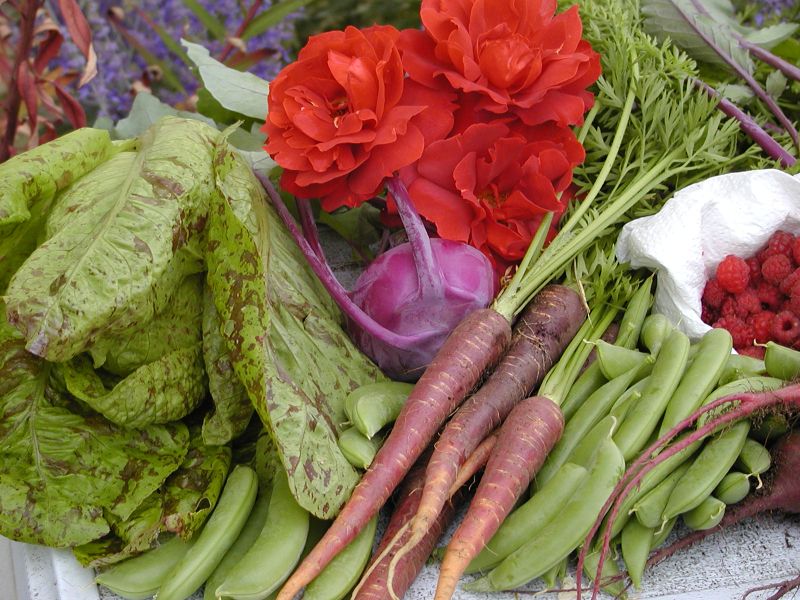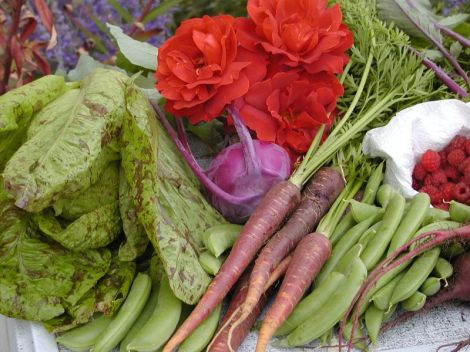Alex Bayley, known around the web as Skud, had forgotten when to pick her cucumbers.
“I had fruit on the vine, and I thought are these ripe?” Bayley recalled. “I had no idea. Obviously I could Google for it and find out what they looked like when ripe, but I didn’t remember what variety of cucumber it was, because I hadn’t written it down and I’d lost the little tag. I was like: Man, I wish I had a web app where I could have made a note of it.”
So she built one. A stripped-down version of that open-source program, Growstuff, just went live (it’s a web app that also works on phones). To explain her vision Bayley compares it to another homesteading 2.0 application:
“So I’m a regular on this site called Ravelry — which you may or may not know depending if you’re friends with crocheters — but what you do is say, right, I’m doing this project with this yarn and you can track your projects. The good thing is, is that, because we’re putting all this data in, it has an enormous searchable pattern database and an enormous searchable yarn database. So you say, I have this much yarn in this weight, I want to knit a cardigan — I want a free downloadable pattern that will fit an 8-year old girl, what have you got? And it will say, here are 30 patterns that fit your criteria. For each one you can go in and see who’s knitted it, what it came out like, and take a look at the pictures. So what I want is Ravelry for veggie gardens.”
Until Growstuff builds up that data, it’s primarily a garden journal: An easy way of tracking what you planted, where, and when. But users have already added enough information to provide some guidance. The cucumber page tells you whether to grow it in sun or shade, and whether to grow it from seed, or seedling, or graft. The data available, Bayley says, “is admittedly very small at this point, but we are starting to generate it.”
The cucumber page also notes that Skud in Melbourne has cucumber seeds that she will trade locally.
“I have a shoebox full of seeds in little packets, and I keep buying them, and forgetting what I have, then I buy some more and forget that I already had that in my shoebox,” she said. “So we have seedtracking now, where you can see what you’ve got, and its plant-before date, and we have seed trading — so I can say I’m willing to trade this locally here in Melbourne, Australia, or I’m willing to mail it anywhere within the country, or internationally.”
Many have tried to do something like this. Most have failed. Before setting out, Bayley surveyed what was already out there. She wasn’t impressed.
“So a lot of gardening sites we see, they put something out there and say, ‘Hey, I built a web 2.0 find-fruit-on-a-map app. You should use it!’ And a lot of people sign up and they go yeah, now what? And they sort of go away and never come back. And the website languishes and gathers dust. There are dozens of these out there — I shouldn’t name names.”
Bayley is hoping to avoid this fate by making her users responsible for shaping the site. As part of that effort, she decided to make the software open source (meaning it’s freely available for anyone to use or tweak), and to make all the information collected open data (meaning anyone can use the local gardening knowledge they aggregate for their own applications).
“We’re just talking to people a lot more. What’s different about this versus other gardening websites is that we are the only one that is open data. We’re really trying to build something that the community, not just the gardening community but the broader sustainability community, can benefit from in the future. Rather than taking in the data and then not do anything with it, it’s going to spread out and be used in all sorts of different ways — at least that’s the hope.”
Bayley isn’t hoping to sell to Facebook; she’d just like Growstuff to support her someday. In the beginning the service is selling what Bayley calls seed accounts, punning on seed funding: permanent accounts for early adopters who want to give the site a boost.
On the internet, it’s generally our personal data that’s cultivated, harvested, and converted into profits. Perhaps freely sharing data might be the thing that sets Growstuff apart. After all, gardeners have always been good about sharing their bounty.




